PARIS — France launched retaliatory airstrikes Sunday night on the Islamic State group’s de-facto capital in Syria, destroying a jihadi training camp and a munitions dump in the city of Raqqa, where Iraqi intelligence officials say the attacks on Paris were planned.
Twelve aircraft, including 10 fighter jets, dropped a total of 20 bombs in the biggest airstrikes since France extended its bombing campaign against the extremist group to Syria in September, a Defense Ministry statement said. The jets launched from sites in Jordan and the Persian Gulf, in coordination with U.S. forces, which helped with the targeting.
Meanwhile, as police announced seven arrests and hunted for more members of the sleeper cell that carried out the Paris attacks that killed at least 129 people, French officials told The Associated Press that several key suspects had been stopped and released by police after the attack.
The arrest warrant for Salah Abdeslam, a 26-year-old born in Brussels, calls him very dangerous and warns people not to intervene if they see him. Yet police already had him in their grasp early Saturday, when they stopped a car carrying three men near the Belgian border. By then, hours had passed since authorities identified Abdeslam as the renter of a Volkswagen Polo that carried hostage-takers to the Paris theater where so many died.
Three French police officials and a top French security official confirmed that officers let Abdeslam go after checking his identification. They spoke on condition of anonymity, lacking authorization to publicly disclose such details.
Tantalizing clues about the extent of the plot have emerged from Baghdad, where senior Iraqi officials told the AP that France and other countries had been warned Thursday of an imminent attack.
An Iraqi intelligence dispatch warned that Islamic State group leader Abu Bakr al-Baghdadi had ordered his followers to immediately launch gun and bomb attacks and take hostages inside the countries of the coalition fighting them in Iraq and Syria.
The Iraqi dispatch, which was obtained by the AP, provided no details on when or where the attack would take place, and a senior French security official told the AP that French intelligence gets these kinds of warnings “all the time” and “every day.”
However, Iraqi intelligence officials said they also warned France about specific details: Among them, that the attackers were trained for this operation and sent back to France from Raqqa.
The officials also said that a sleeper cell in France met with the attackers after their training and helped them execute the plan. There were 24 people involved in the operation, they said: 19 attackers and five others in charge of logistics and planning.
None of these details have been corroborated by officials of France or other Western intelligence agencies.
All these French and Iraqi security and intelligence officials spoke with the AP on condition of anonymity, citing the ongoing investigation.
Abdeslam is one of three brothers believed to be involved; One who crossed with him into Belgium was later arrested, and another blew himself up inside the Bataclan theater after taking the audience hostage and firing on them repeatedly. It was the worst of Friday’s synchronized attacks, leaving 89 fatalities and hundreds of people wounded inside.
The Islamic State group claimed responsibility. Its statement mocked France’s air attacks on suspected IS targets in Syria and Iraq, and called Paris “the capital of prostitution and obscenity.”
In all, three teams of attackers, including seven suicide bombers, attacked the national stadium, the concert hall and nearby nightspots. The attacks wounded about 350 people, 99 of them seriously.
As many as three of the seven suicide bombers were French citizens, as was at least one of the men arrested in the Molenbeek neighborhood of Brussels, which authorities consider to be a focal point for extremists and fighters going to Syria from Belgium.
Belgian Interior Minister Jan Jambon, speaking to The Associated Press by phone, said suspects arrested in Molenbeek had been stopped previously in Cambrai, France, “in a regular roadside check,” but that police had no suspicion about them at the time and they were let go quickly.
One, identified by the print on a recovered finger, was 29-year-old Frenchman Ismael Mostefai, who had a record of petty crime and had been flagged in 2010 for ties to Islamic radicalism, the Paris prosecutor said. A judicial official and lawmaker Jean-Pierre Gorges confirmed his identity.
A judicial official said police also have identified two other of the suicide bombers, both French nationals who had been living in Belgium: 20-year-old Bilal Hadfi, who detonated himself outside the Stade de France, and 31-year-old Brahim Abdeslam, the brother of fugitive Salah Abdeslam, who blew himself up on the Boulevard Voltaire.
These details stoked fears of homegrown terrorism in France, which has exported more jihadis than any other in Europe, and seen many return from the fight. All three gunmen in the January attacks on the Charlie Hebdo newspaper and a kosher supermarket in Paris were French.
The attackers inside the Bataclan seemed quite young, said one survivor, Julien Pearce, a journalist at Europe 1 radio who escaped by crawling onto the stage and then out an exit door when the shooters paused to reload. Before making his final dash, he got a good look at one of the assailants, he said.
“He seemed very young. That’s what struck me, his childish face, very determined, cold, calm, frightening,” Pearce said.
Struggling to keep his country calm and united after an exceptionally violent year, President Francois Hollande met Sunday with opposition leaders – conservative rival and former President Nicolas Sarkozy as well as increasingly popular far-right leader Marine Le Pen, who has used the attacks on Paris to advance her anti-immigrant agenda.
Refugees fleeing war by the tens of thousands fear the Paris attacks could prompt Europe to close its border to them, especially after police said a Syrian passport found next to one attacker’s body suggested its owner passed through Greece into the European Union and on through Macedonia and Serbia last month.
France’s retaliatory airstrikes came as President Obama held talks with allied leaders and with Russian President Vladimir Putin at the Group of 20 summit being held in the Turkish resort city of Antalya.
Obama vowed again Sunday to help France hunt down the perpetrators of the attacks. Deputy national security adviser Ben Rhodes said Obama agreed with French President François Hollande that the rampage was an “act of war.” But he and others disputed suggestions from Republicans that Obama has consistently underestimated the adversary.
Administration officials said the U.S. would not alter its strategy against the Islamic State in response to the Paris attacks, despite evidence that the terrorist group was expanding its ability to hit Western targets. In recent weeks, Obama has approved the escalation of airstrikes in Syria and Iraq and has authorized the deployment of 50 Special Operations troops to assist Syrian Kurdish and Arab forces pushing toward Raqqa.
Meanwhile, Paris remained on edge amid three days of official mourning. French troops have deployed by the thousands and tourist sites remain shuttered in one of the most visited cities on Earth. Panic ensued Sunday night as police abruptly cleared hundreds of mourners from the famed Place de la Republique square, where police said firecrackers sparked a false alarm.
“Whoever starts running starts everyone else running,” said Alice Carton, a city council member who was at the square. “It’s a very weird atmosphere. The sirens and screaming are a source of fear.”
– The Washington Post contributed to this report
Send questions/comments to the editors.

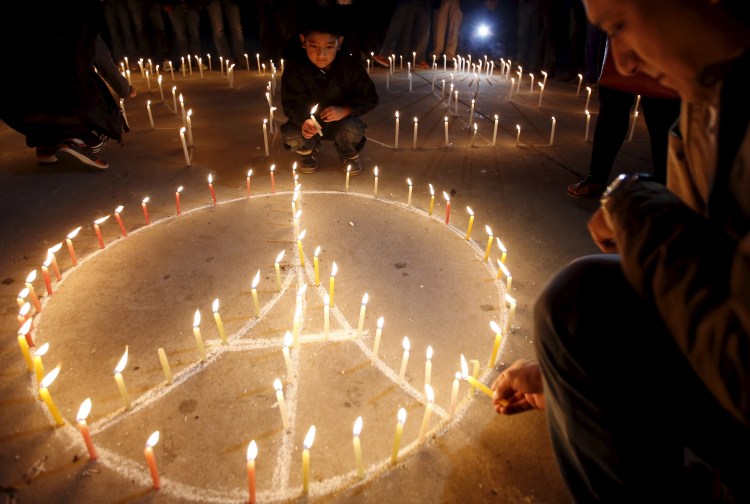
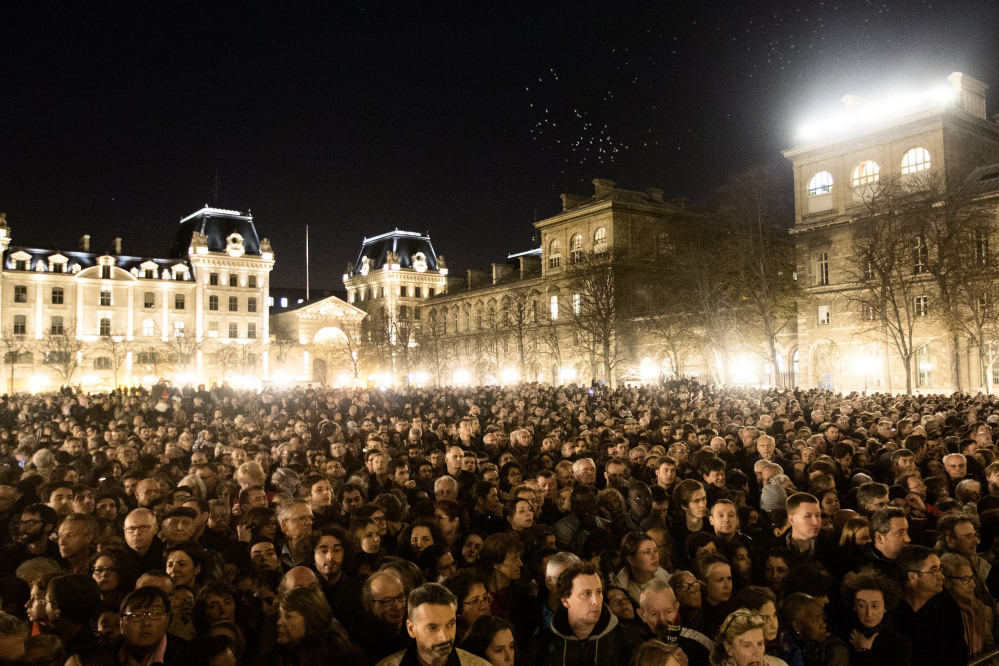
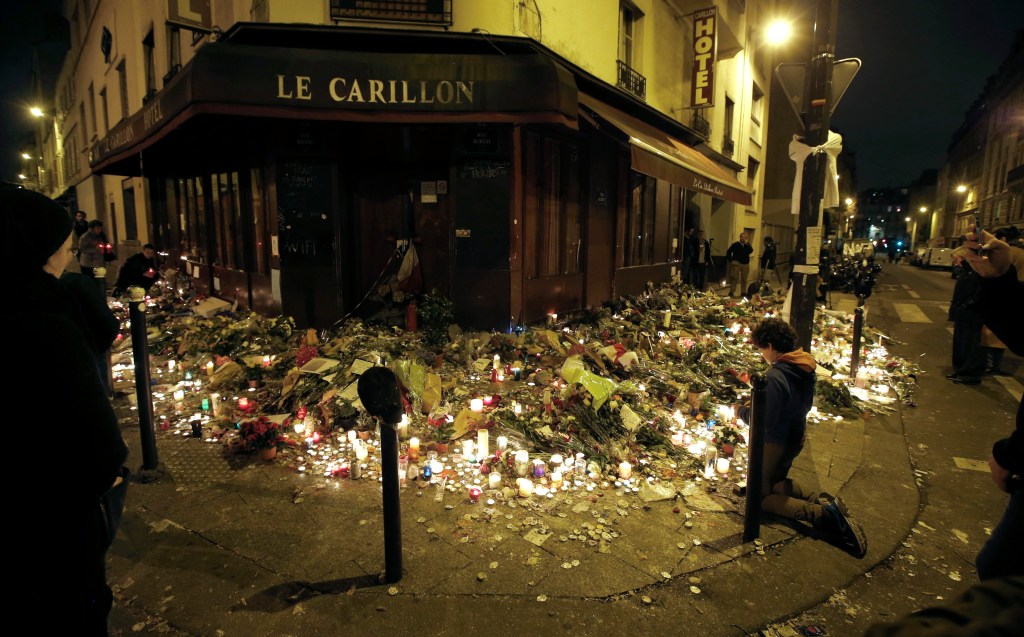
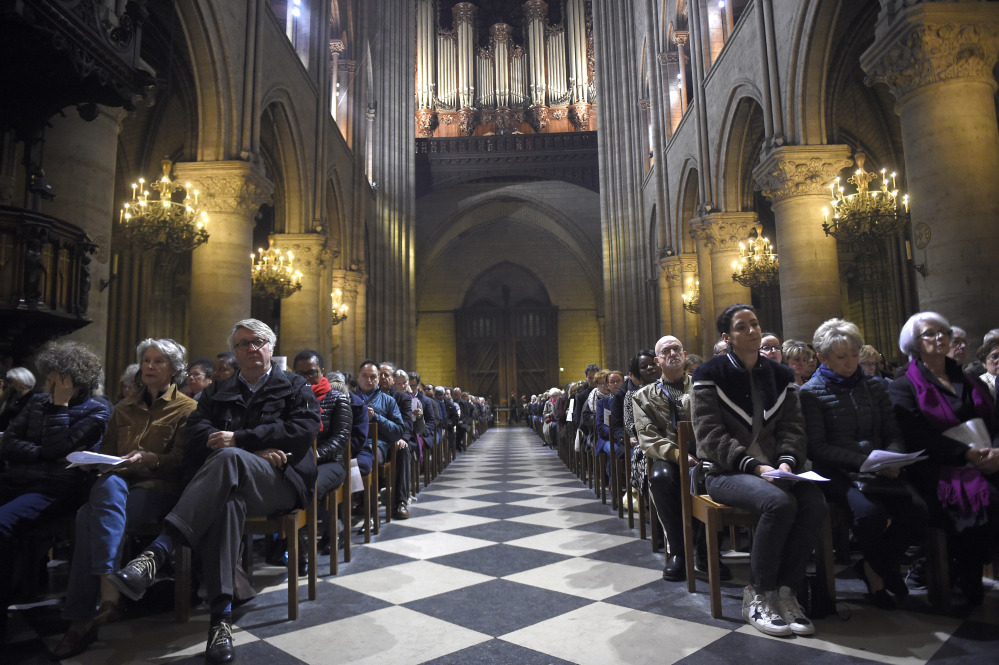
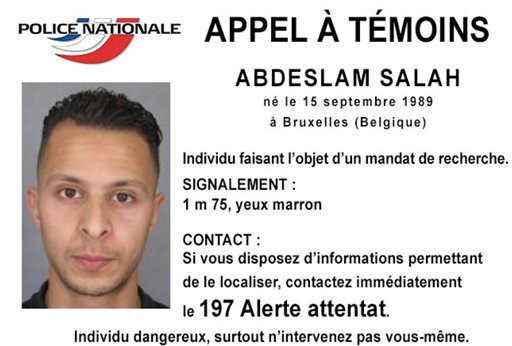

Success. Please wait for the page to reload. If the page does not reload within 5 seconds, please refresh the page.
Enter your email and password to access comments.
Hi, to comment on stories you must . This profile is in addition to your subscription and website login.
Already have a commenting profile? .
Invalid username/password.
Please check your email to confirm and complete your registration.
Only subscribers are eligible to post comments. Please subscribe or login first for digital access. Here’s why.
Use the form below to reset your password. When you've submitted your account email, we will send an email with a reset code.